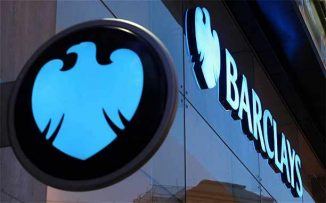City white-collar crime specialists have been drafted in as the Serious Fraud Office (SFO) today (20 June) charged Barclays and four former executives with conspiracy to commit fraud, false representation and unlawful financial assistance in arranging a £7.3bn Qatar funding deal at the height of the financial crisis – the first such prosecution of a bank.
The SFO has charged former Barclays CEO John Varley, former senior investment banker Roger Jenkins, former chief executive of Barclays’ wealth division Thomas Kalaris and ex-European head of financial institutions Richard Boath.
Barclays is represented by Willkie Farr & Gallagher, Jenkins by Brad Kaufman at Greenberg Traurig on the US side and Jenkins by Herbert Smith Freehills in the UK, while former CEO Varley has instructed Corker Binning.
Kalaris has instructed Steptoe & Johnson and Boath is represented by Michael O’Kane of Peters & Peters.
The defendants will appear before Westminster Magistrates Court on 3 July.
Barclays, Varley, Jenkins, Kalaris and Boath are charged with conspiracy to commit fraud by false representation in relation to the June 2008 capital raising under the Fraud Act 2006 and the Criminal Law Act 1977.
Barclays, Varley and Jenkins are separately charged with conspiracy to commit fraud by false representation in relation to the October 2008 capital raising, contrary to the Fraud Act 2006 and the Criminal Law Act 1977, and unlawful financial assistance contrary to the Companies Act 1985.
The decision is the first criminal prosecution against a UK bank and its former executives for their part in that crisis, nearly 10 years on. It is five years since the SFO began investigating the bank’s fundraising during the 2008 financial crisis.
The charges arise from Barclays’ capital raising arrangements with Qatar Holding and Challenger Universal in June and October 2008. They also relate to a $3bn loan facility made available to the State of Qatar acting through its ministry of economy and finance in November 2008.
One City partner told Legal Business the fact that this is the first prosecution of a bank as a result of financial crisis manoeuvring is ‘shameful’ for the government. ‘It takes political willpower and resources to bring these cases and there appears there isn’t a huge amount on the government side.’
‘The SFO’s existence is under threat, and it is hugely underfunded. The government does not take the SFO seriously and does not put the right resources into it,’ he said.
On the SFO’s delay in bringing the first charges so long after the event and since it launched the probe, Claire Shaw of Keystone Law said the SFO was under political pressure to make a decision, a decade after the crash: ‘There is a general feeling at the moment that we have to have charges.’
The SFO likely delayed because it was waiting for witnesses and documents from abroad to ensure it got over the criminal threshold required, Shaw said, adding that the SFO must ‘be careful before making charges. In a case like this, you do not want the spotlight of the world shine on you which may cause the case to collapse,’ she said.
White & Case London partner Jonathan Pickworth, however, countered that the decision to prosecute Barclays for its fundraising efforts ‘almost a decade ago’ is no longer in the public interest. ‘Who does this punish and what purpose does it serve? All the former management team moved on many years ago. This will only hurt the current shareholders and today’s hardworking employees.’
Barclays said it was considering its position ‘in relation to these developments, as it awaits further details of the charges from the SFO. The SFO has informed Barclays that it has not made a decision as to whether it will also bring charges against Barclays Bank in respect of the loan’ facility made available to Qatar in November 2008.
georgiana.tudor@legalease.co.uk











